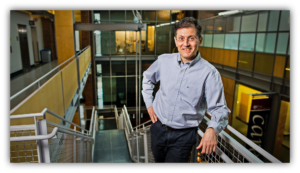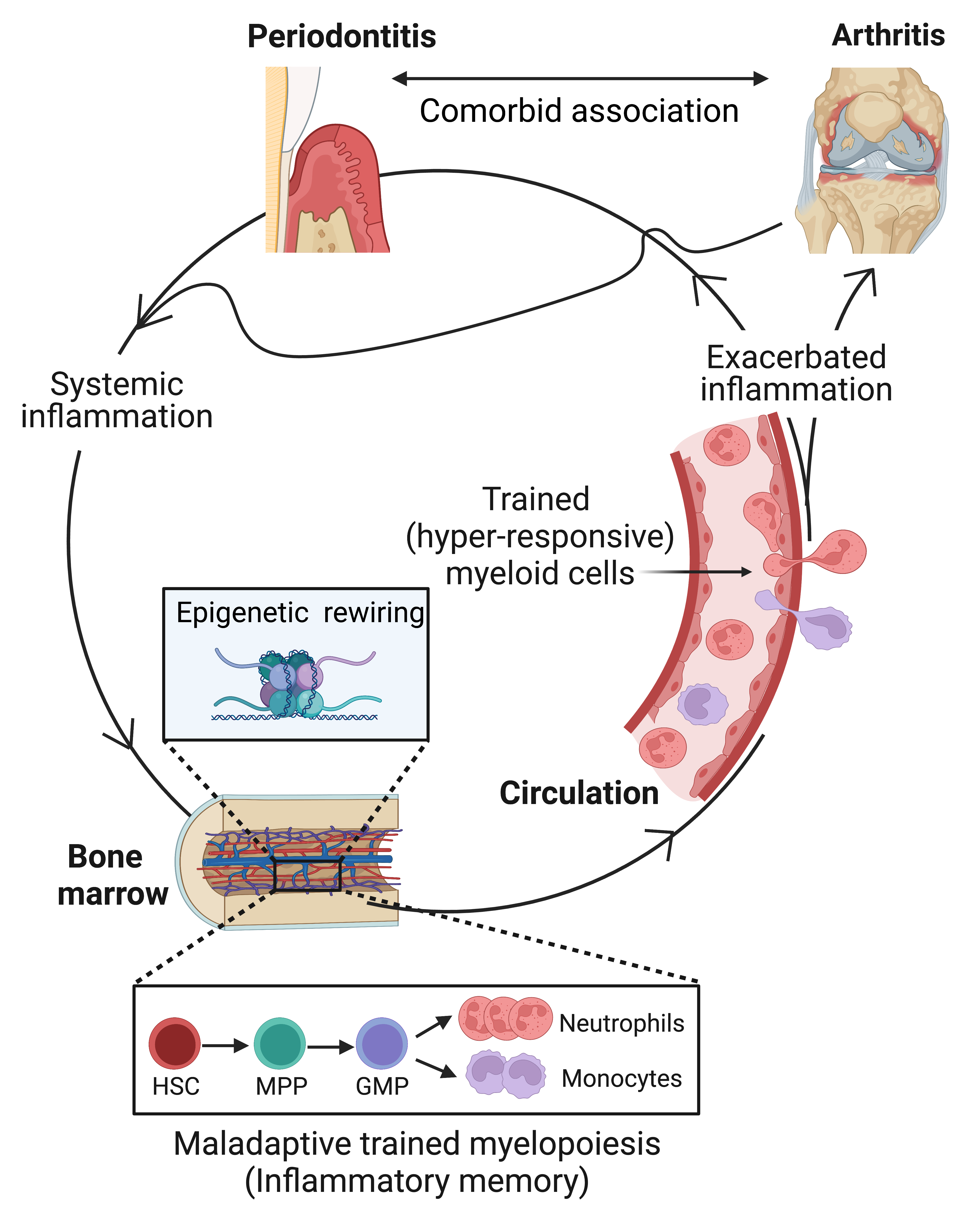Short Biography
Dr. Hajishengallis earned a D.D.S. from the University of Athens (1989) and a Ph.D. in Microbiology/Immunology from the University of Alabama at Birmingham (1994). He is currently the Thomas W. Evans Centennial Professor at the University of Pennsylvania, School of Dental Medicine. His field of interest lies at the host-microbe interface, where his work has illuminated novel mechanisms of microbial dysbiosis and inflammation as well as inflammation resolution and tissue regeneration. A current focus of his laboratory involves the immunometabolic regulation of trained myelopoiesis and its effects on systemic health and disease.
Dr. Hajishengallis combines basic and translational research leading to innovative approaches to clinical problems, such as exemplified by periodontitis, where his preclinical work has recently led to a successful complement-targeted phase 2a clinical trial in patients with periodontal inflammation (See Figure 1 below). In preclinical models of an aggressive form of periodontal disease associated with leukocyte adhesion deficiency type 1 (LAD-1), he established the IL-23/IL-17 axis as the driver of this condition; this concept has been translated to effective treatment of LAD-1 patients at the NIH. His lab has played a crucial role in the identification of Porphyromonas gingivalis as a ‘keystone pathogen’ and in establishing periodontitis as a polymicrobial dysbiotic disease (‘polymicrobial synergy and dysbiosis’ PSD model) rather than an infection, as traditionally thought. Moreover, his work identified a novel homeostatic factor, DEL-1, with anti-inflammatory, pro-resolving and pro-regenerative properties, in a variety of tissues (e.g., periodontium, joints, and central nervous system). More recently, in a publication in CELL, the Hajishengallis lab and collaborators in Germany have identified maladaptive trained myelopoiesis as the mechanistic basis for the bidirectional association of distinct inflammatory comorbidities, as exemplified by the periodontitis-arthritis axis (See Figure 2 below). Dr. Hajishengallis’ research is mostly supported by NIH/NIDCR from which he has received more than $30 million research funding.
Dr. Hajishengallis has published over 225 papers (with more than 38,348 citations; Google Scholar), including in Cell, Nature Immunology, Science Translational Medicine, J. Clin. Invest., Cell Host Microbe, PNAS, N. Engl. J. Med., Nature Reviews Immunology and Nature Reviews Microbiology. He has delivered numerous invited lectures and served as a session chairperson at various national and international research conferences. He has organized multiple scientific conferences in the U.S. and abroad and serves as an Editorial Board Member in several peer-reviewed journals. He is a member of the scientific advisory boards of the Aegean Conferences and of Forsyth Institute as well as of the NIDCR Board of Scientific Counselors. He has mentored multiple graduate students and postdoctoral fellows, many of whom are currently pursuing independent careers in academia. Dr. Hajishengallis received the IADR Distinguished Scientist Award in Oral Biology in 2012 and the NIH/NIDCR MERIT Award in 2016. He was named Highly Cited Researcher (Clarivate/Web-of-Science) in 2018, 2020 2021, 2022, and 2023.


